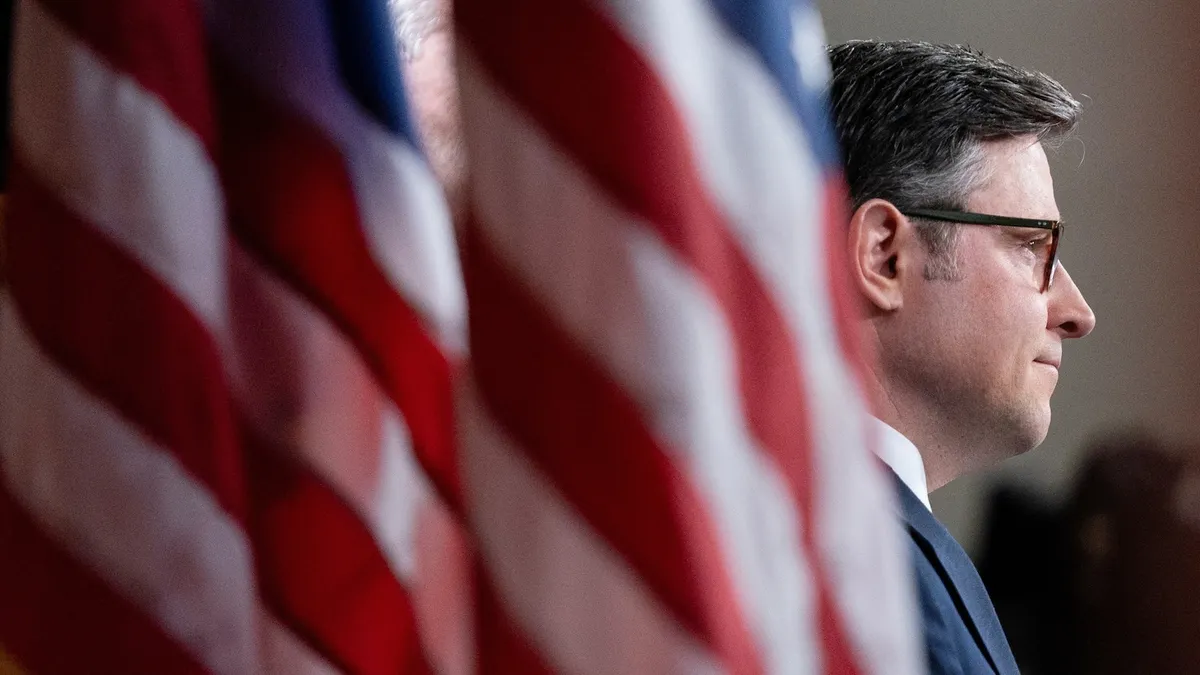
In a dramatic turn of events, House Republicans successfully passed a bill aimed at funding the government through the end of September 2025. This legislative victory marks a significant achievement for Speaker Mike Johnson, who has previously sought bipartisan support from Democrats to prevent government shutdowns. The House voted narrowly, with a final tally of 217-213 in favor of the spending bill, known as a continuing resolution. The bill will now proceed to the Senate, where it faces an uncertain future as it requires 60 votes to pass.
As anticipated, Rep. Thomas Massie, a Kentucky Republican, voted against the bill despite facing pressure from former President Donald Trump, who threatened primary challenges. To secure the necessary votes, Speaker Johnson garnered support from several Republicans who had previously opposed continuing resolutions. Notably, Rep. Jared Golden was the only Democrat to cross party lines and vote with Republicans, while the rest of the Democratic caucus opposed the measure. This voting pattern gives a preview of how Senate Democrats may respond.
Golden expressed his views on social media platform X, stating, "This CR is not perfect, but a shutdown would be worse." He emphasized the potential chaos that even a brief government shutdown could introduce, especially at a time when the country is grappling with numerous challenges. Furthermore, he criticized Democrats for employing what he described as "messaging gimmicks" regarding the bill.
The legislation funds the government at current levels through September 30, 2025, and represents a crucial test for Speaker Johnson. With no Democratic support, he could only afford to lose one Republican vote; a second defection would have jeopardized the bill's passage. Following the vote, Johnson asserted that Republicans were committed to serving the American public and criticized Democrats for their continued partisan politics.
Johnson received significant backing from both President Trump and Vice President JD Vance, who actively lobbied House Republicans to secure the necessary support ahead of the vote. In the final hours leading up to the decision, Trump reached out to undecided House Republicans, while Vice President Vance attended a closed-door meeting to encourage party unity.
The 99-page spending bill proposes overall decreases in spending from last year's levels, while simultaneously increasing military spending by approximately $6 billion. Additionally, it allocates $6 billion for veterans' health care, but reduces non-defense spending by about $13 billion compared to fiscal year 2024 levels. Notably absent from the legislation is emergency funding for disaster relief, although it does enhance funding for Immigration and Customs Enforcement deportation operations and increases funding for the Women, Infants, and Children (WIC) program by around $500 million, which provides essential grocery assistance to low-income women and children.
With the House now having dispatched its bill to the Senate, the next steps remain uncertain. The legislation will require significant bipartisan support to navigate the complexities of the upper chamber, especially given the looming deadline for government funding, which is set to expire at the end of the day on Friday, March 14.